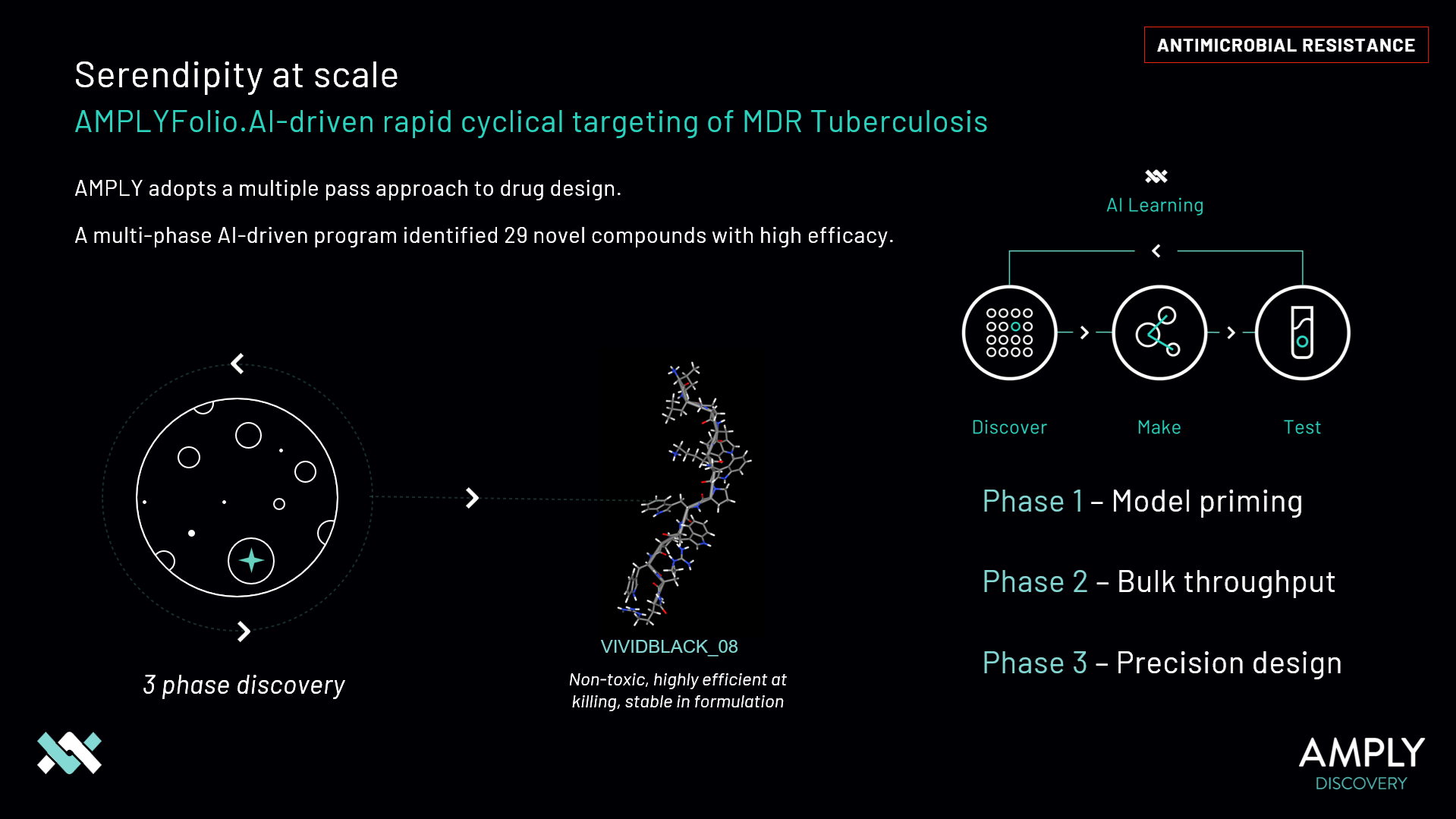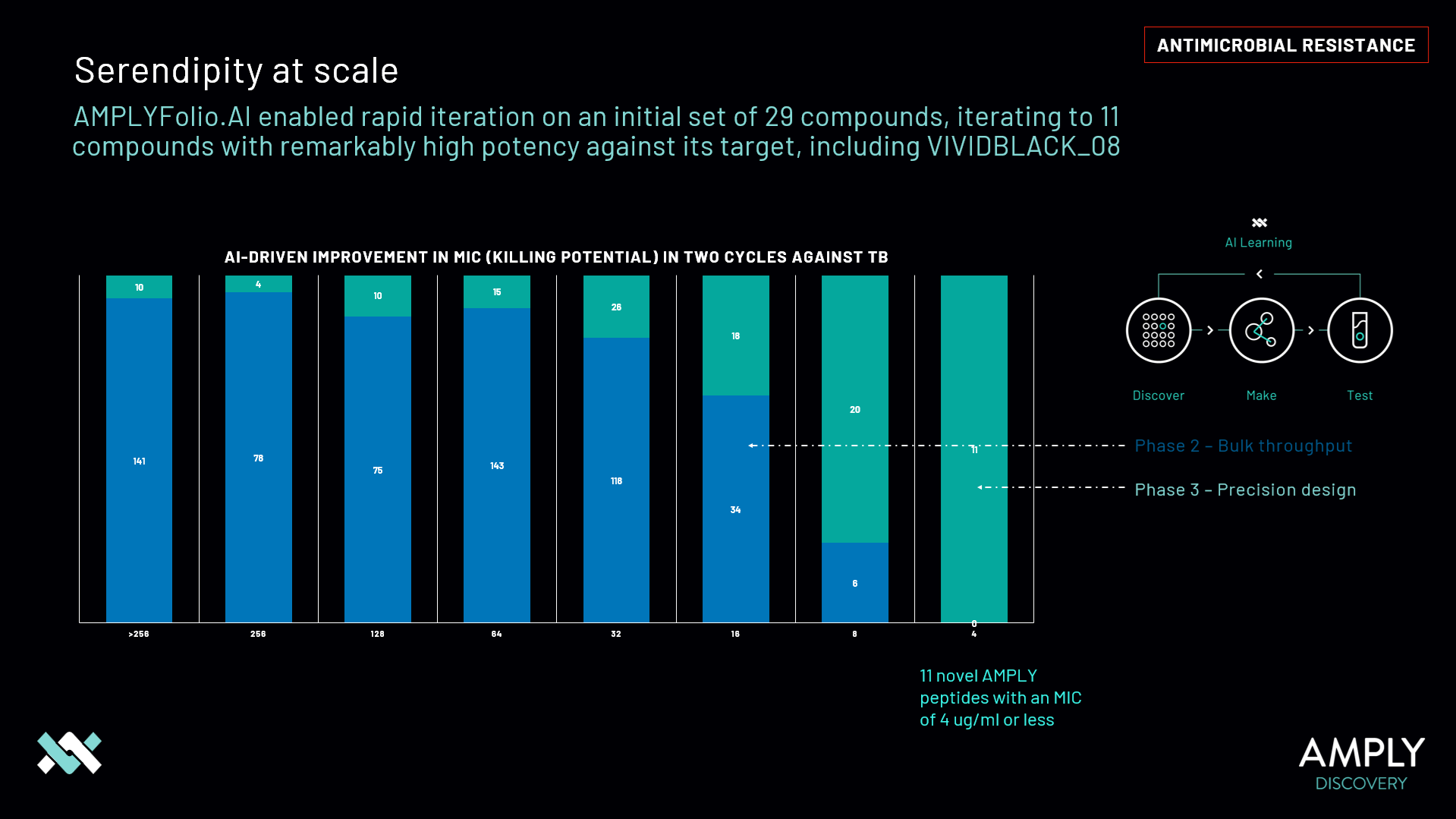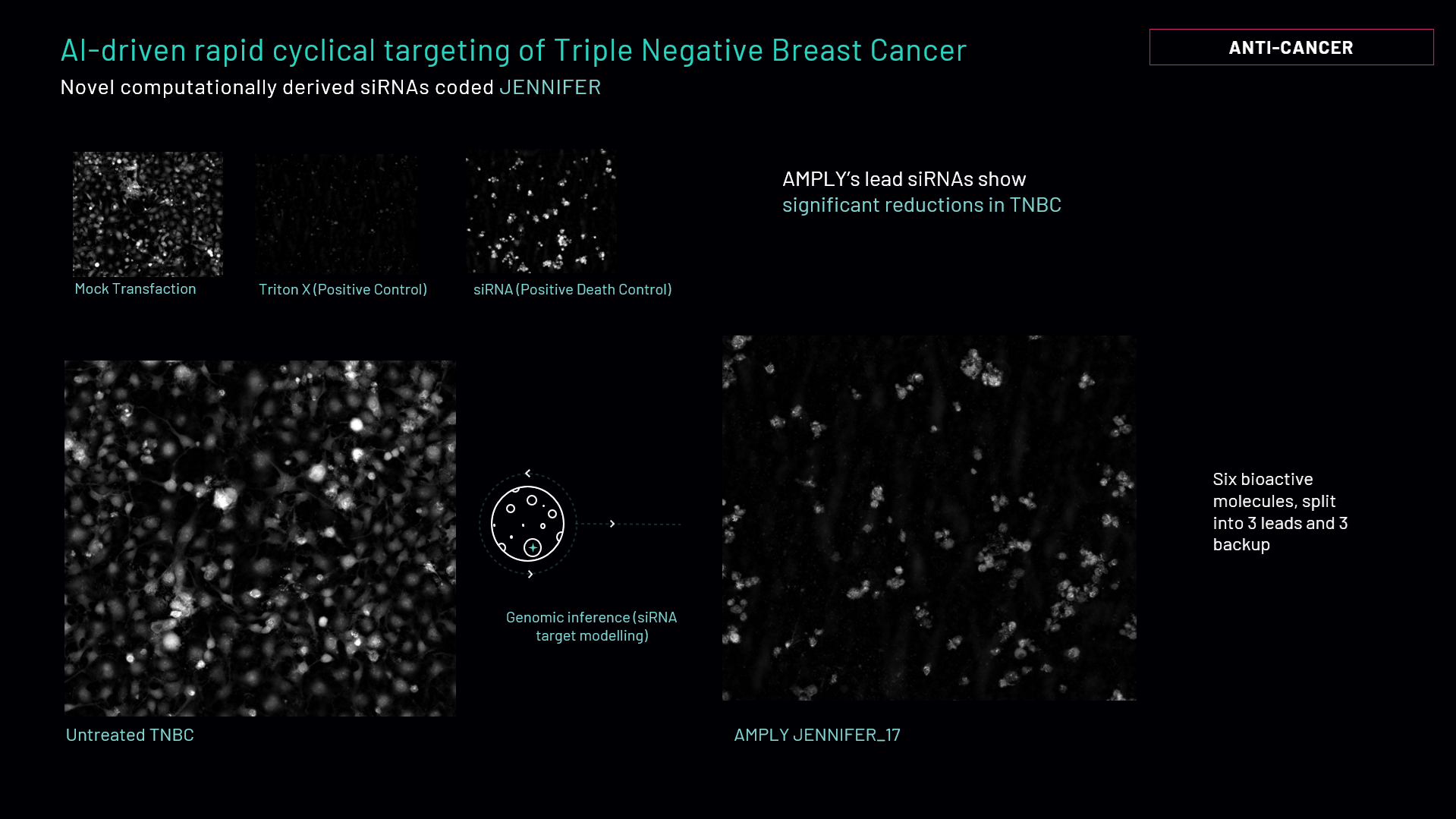
Novel Biologics
Designed by Evolution
Discovered by AI




AMPLY leverages “serendipity at scale”
It takes many hands to bring a new drug to market, and we are focused on becoming a great drug discovery studio, using our computational excellence to rapidly advance the discovery of new drug candidates in the areas of cancer and infectious diseases. We develop and validate these novel candidates and then out-license them to our larger biopharma partners.
By focusing on genetically-mediated types of cancer we can deliver near-term value in a mature market, worth at least $157 billion per annum, as precision-therapies replace existing chemotherapeutic drugs. By keeping one eye on novel antimicrobials for drug-resistant infections we can be ready to lead the way in the emerging Antibiotic Resistance market, which is estimated to become a trillion dollar problem by 2050.
We are currently working on four key disease programs:
- Acute Myeloid Leukaemia (AML)
- Triple Negative Breast Cancer (TNBC)
- Multi-drug Resistant Tuberculosis (MDRTB)
- Cystic Fibrosis associated acute lung infections

Our AMPs:
RAPID KILL TIMES (AS LOW AS <40 MINUTES) AGAINST KEY DRUG RESISTANT ESKAPE PATHOGENS
SOLUBLE IN LOW-COST FORMULATIONS FOR IN EXCESS OF 30 DAYS
STABLE AND HIGHLY RECOVERABLE WHEN NEBULISED
A VARIETY OF MODES OF BACTERIAL KILLING ACTION
CAPABLE OF COMPLEX BIOFILM DISRUPTION
ACTIVITY AGAINST COMPLEX ISOLATES WITH MULTIPLE PATHOGENS PRESENT

Our RNAi:
SPECIFICALLY TARGET AND SILENCE CANCER-RELATED GENES
FEWER SIDE EFFECTS COMPARED TO TRADITIONAL THERAPIES
CAN BE DESIGNED TO TARGET ALMOST ANY GENE
CAN BE USED ALONGSIDE OTHER TREATMENTS TO ENHANCE EFFECTIVENESS
USEFUL IN TARGETING GENES INVOLVED IN CHEMOTHERAPY RESISTANCE
ALLOW FOR PERSONALIZED TREATMENT BASED ON THE GENETIC MAKEUP OF AN INDIVIDUAL’S TUMOR
